Growing up, many of us delighted in a variety of foods without a second thought about their potential health implications. However, as nutrition science advances, certain beloved childhood staples have come under scrutiny for their links to health issues. This article explores 17 foods you may have consumed as a child that are now associated with serious health problems. We’ll delve into the reasons behind these concerns, providing a comprehensive overview of each item’s potential risks and why moderation, or even avoidance, might be wise.
1. Sugary Breakfast Cereals
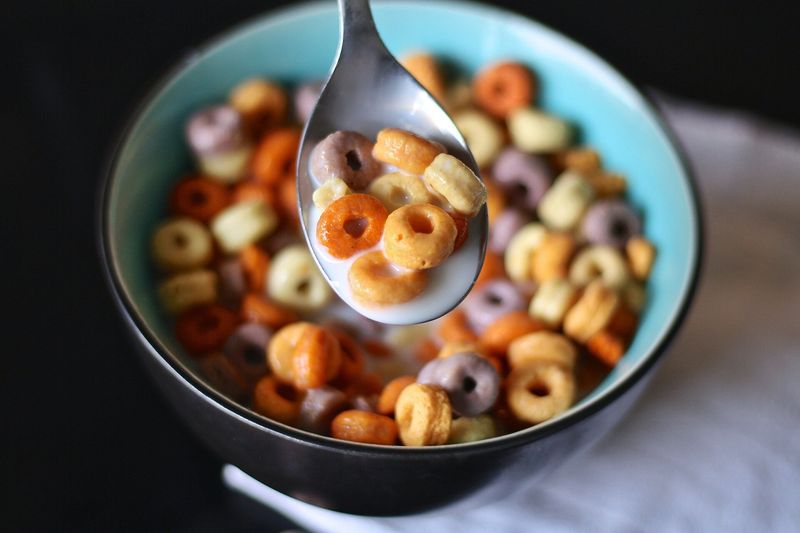
Brightly colored and irresistibly sweet, sugary breakfast cereals were a staple in many households. Though they were a morning favorite, these cereals are often loaded with sugar and artificial additives.
Consuming high-sugar cereals regularly can lead to obesity and increase the risk of developing type 2 diabetes. The sugar rush they provide is short-lived, often leading to mid-morning energy crashes.
Nowadays, health experts recommend choosing cereals with whole grains and minimal sugar. Reading labels carefully and opting for healthier alternatives can make breakfast both nutritious and enjoyable.
2. Hot Dogs

Few foods scream childhood nostalgia like a hot dog at a summer barbecue. However, these processed meats are often high in sodium, nitrates, and saturated fats.
Studies have linked frequent consumption of hot dogs to an increased risk of colorectal cancer and heart disease. The preservatives used in processing can be particularly harmful to long-term health.
For those who love the flavor, opting for nitrate-free and lower-sodium versions can be a healthier choice. Alternatively, exploring plant-based options might offer similar satisfaction without the associated risks.
3. Soda
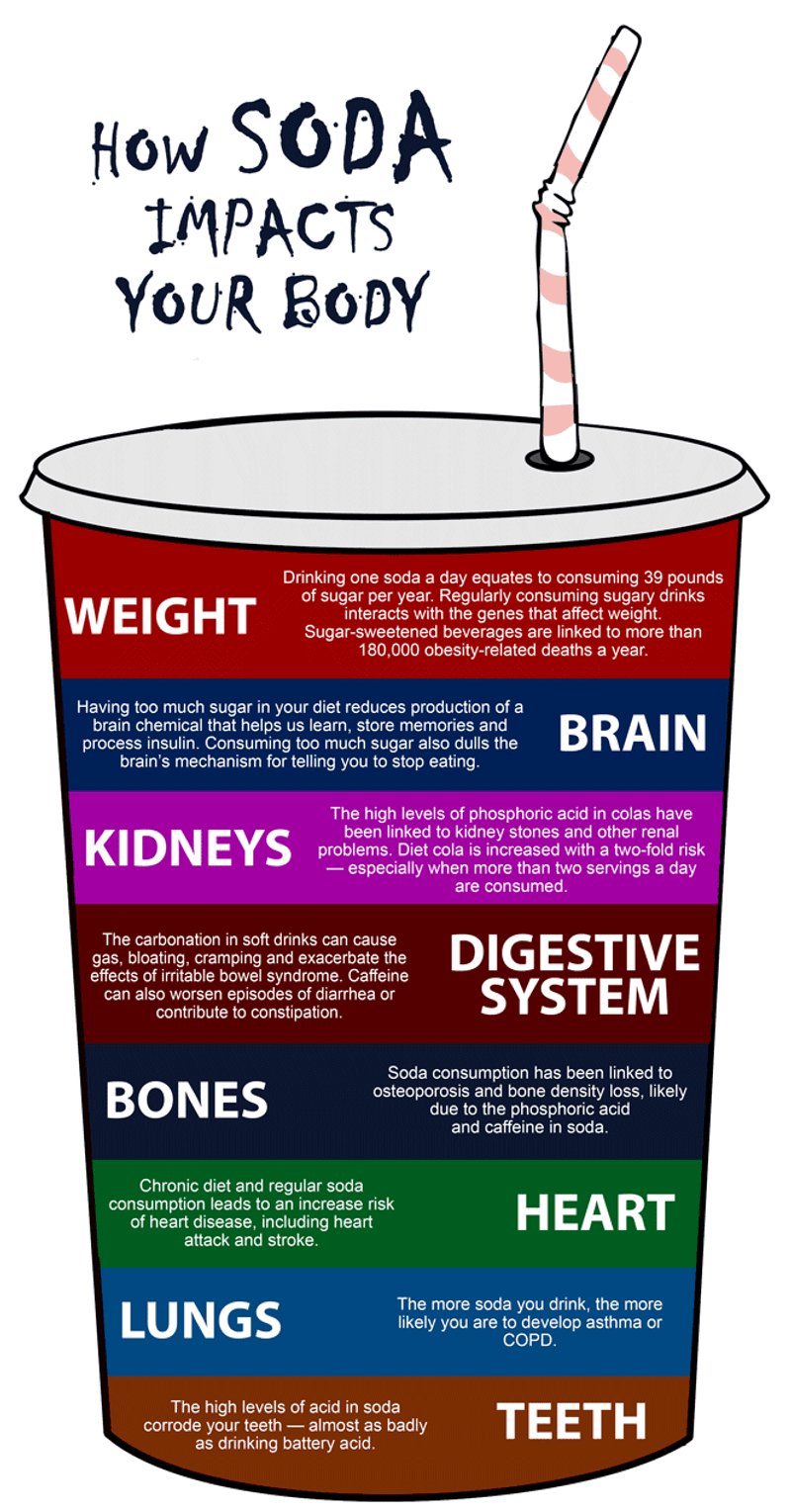
It’s hard to forget the fizzy delight of soda during childhood parties. Yet, regularly indulging in these sugary drinks can pose significant health risks.
Sodas are a major source of added sugars, contributing to obesity, tooth decay, and metabolic syndrome. The caffeine and phosphoric acid content can also affect bone health.
Replacing soda with water, herbal teas, or natural fruit juices is a wise choice. Moderating consumption and being aware of sugar content can help maintain a more balanced and healthy lifestyle.
4. Processed Cheese

Processed cheese often found its way into sandwiches and burgers, bringing convenience and flavor. However, this convenience comes at a health cost.
Such cheeses are typically high in sodium and contain artificial preservatives and emulsifiers. These additives can negatively impact cardiovascular health over time.
Switching to natural cheeses and being mindful of serving sizes can greatly reduce these risks. Emphasizing quality over quantity ensures that cheese remains a delightful addition to meals, without the hidden dangers.
5. Chicken Nuggets
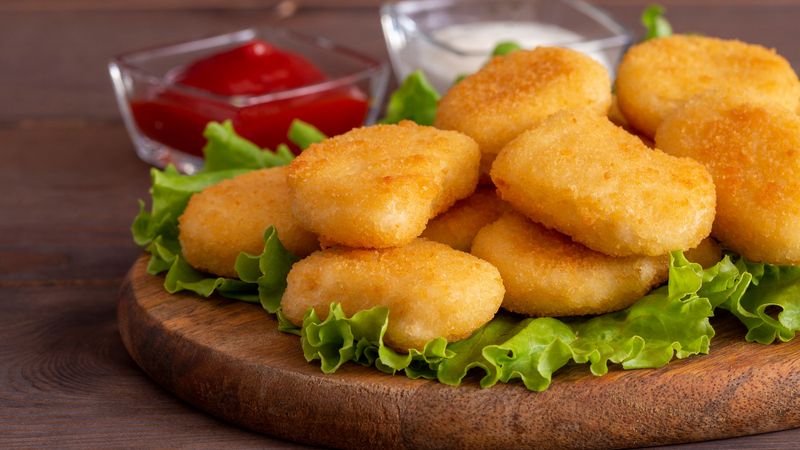
Chicken nuggets are a favorite among children for their crispy exterior and savory taste. Despite their popularity, these nuggets often contain processed meats, fillers, and excessive sodium.
The frying process adds unhealthy fats, contributing to potential weight gain and heart issues. Consuming them in moderation and choosing brands with transparent ingredients can mitigate some health concerns.
Baking homemade nuggets with quality chicken and whole-grain coatings can provide a healthier alternative, maintaining flavor without the negative health effects.
6. Instant Ramen
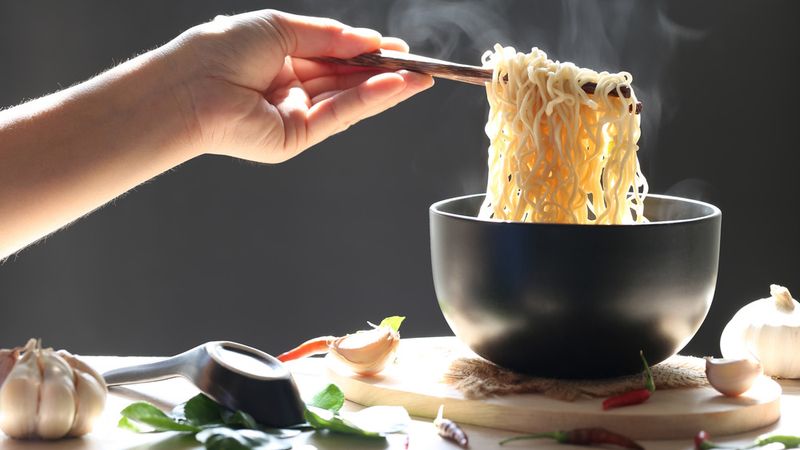
Instant ramen was a quick fix for many, appreciated for its convenience and taste. Despite this, the high sodium content in the seasoning packets poses health risks.
These noodles often lack nutritional value, and frequent consumption is linked to hypertension and other cardiovascular issues. Opting for low-sodium versions and adding fresh vegetables can improve nutritional quality.
Exploring homemade ramen recipes with fresh ingredients offers a flavorful experience without compromising health. This approach balances convenience with mindful eating habits.
7. Pop-Tarts

Pop-Tarts, with their sugary icing and sweet filling, were a breakfast favorite for many children. However, their high sugar content and artificial ingredients raise health concerns.
Consuming these pastries regularly can lead to weight gain and increased risk of developing metabolic disorders. The lack of fiber and protein makes them a less desirable breakfast choice.
Choosing whole grain and low-sugar alternatives can provide a more balanced start to the day. Homemade versions with natural fillings can maintain the fun without the health risks.
8. Canned Soups
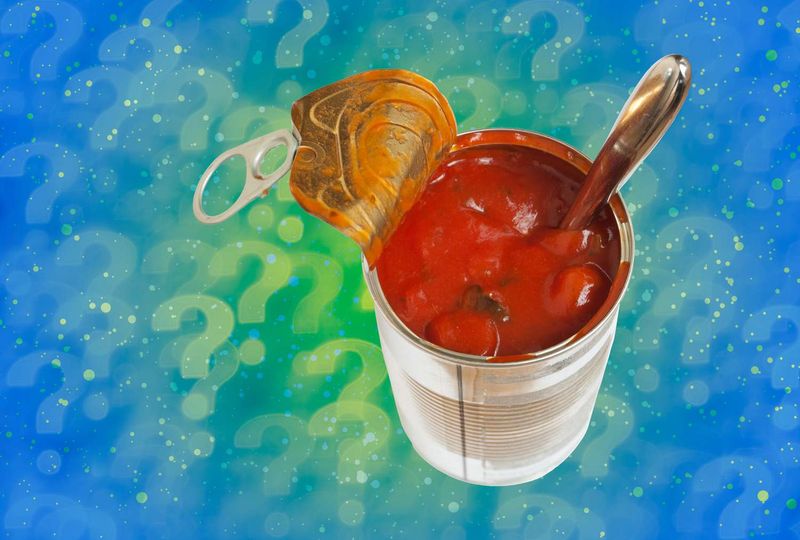
Canned soups offered simplicity and warmth, perfect for a quick meal. Despite this, many canned soups are laden with sodium and preservatives.
Frequent consumption can contribute to high blood pressure and other cardiovascular problems. The lack of fresh ingredients also diminishes their nutritional value.
Opting for low-sodium versions and adding fresh herbs or vegetables can enhance flavor and health benefits. Creating homemade soups allows for control over ingredients, ensuring a wholesome meal.
9. White Bread
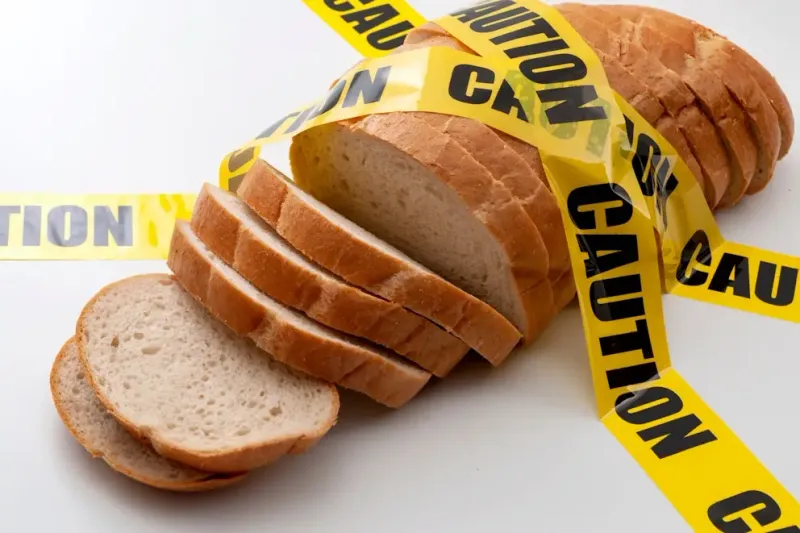
White bread was a sandwich staple, loved for its soft texture and mild flavor. However, its refined nature means it lacks essential nutrients.
The processing removes fiber and vitamins, making it a less nutritious choice. High consumption can lead to blood sugar spikes and increased risk of metabolic conditions.
Switching to whole grain or whole wheat bread can provide more fiber and nutrients, supporting a balanced diet. Reading labels carefully helps to choose breads with minimal additives and maximum health benefits.
10. Jelly Beans
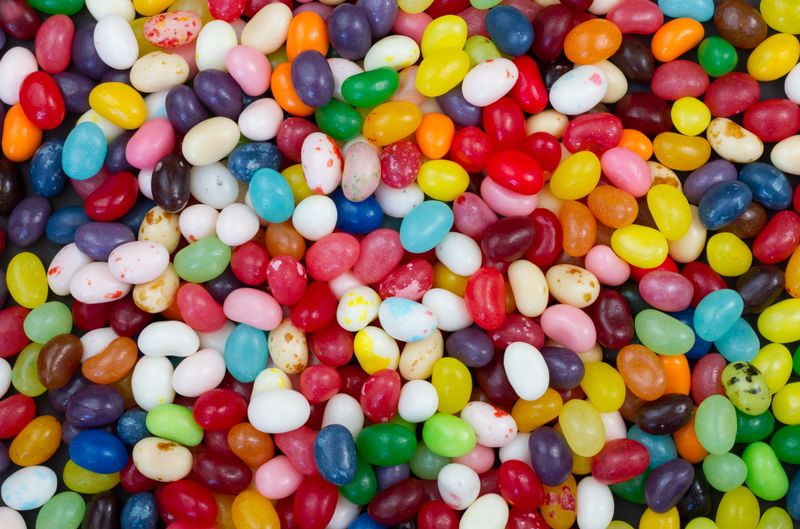
Jelly beans, with their vibrant colors and sweet taste, were a delightful treat. However, they are essentially sugar and artificial dyes.
Excessive consumption can lead to tooth decay and contribute to obesity. Artificial dyes have also been linked to behavioral issues in children.
For those who enjoy these candies, moderation is key. Opting for natural, dye-free alternatives can reduce health risks while still satisfying sweet cravings. Homemade versions with natural ingredients can also be a fun project.
11. Fruit Snacks
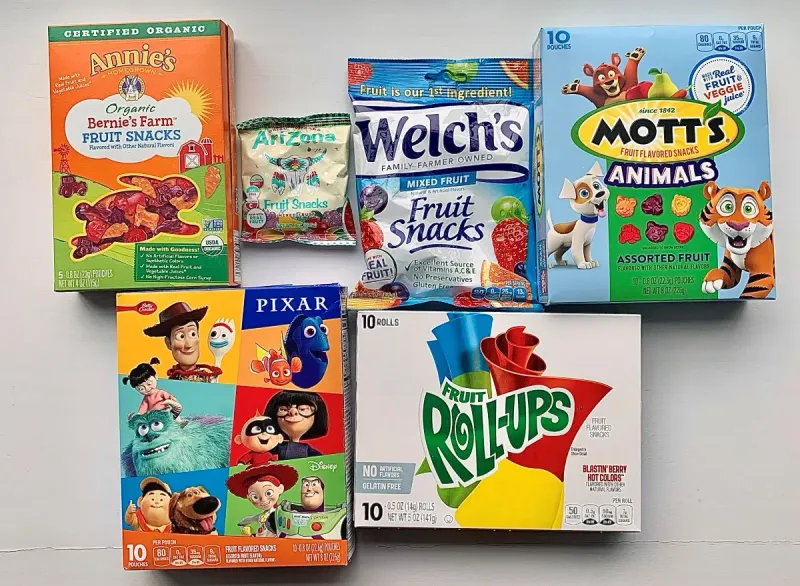
Fruit snacks, often marketed as a healthy choice, are usually far from it. These snacks are typically high in sugar and contain artificial flavors and colors.
Regular consumption can contribute to dental issues and unhealthy weight gain. The lack of real fruit content means they offer little nutritional value.
Choosing snacks made with real fruit and without added sugars can be a healthier option. Reading labels carefully ensures that sweetness comes from natural sources, supporting better health.
12. Candy Bars
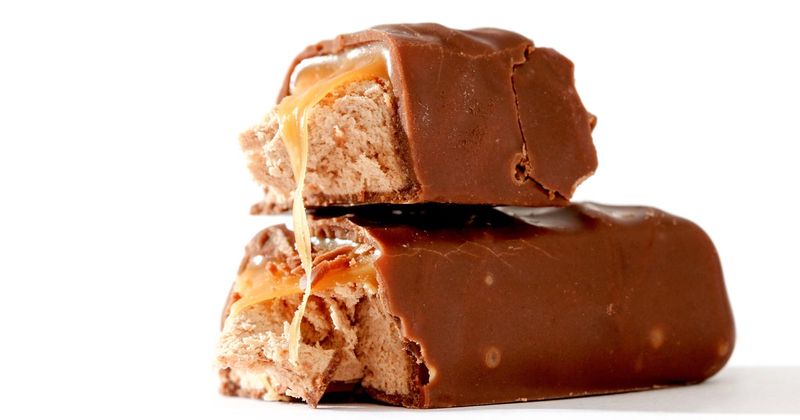
Candy bars, with their rich chocolate and nougat layers, were irresistible treats. Unfortunately, these sweets are loaded with sugar, unhealthy fats, and calories.
Frequent indulgence can lead to weight gain, dental cavities, and increased risk of diabetes. The lack of nutritional benefits makes them an occasional treat rather than a dietary staple.
For those who love chocolate, opting for dark chocolate or bars with lower sugar content can be a healthier choice. Enjoying them in moderation keeps health concerns at bay while satisfying cravings.
13. Microwave Popcorn
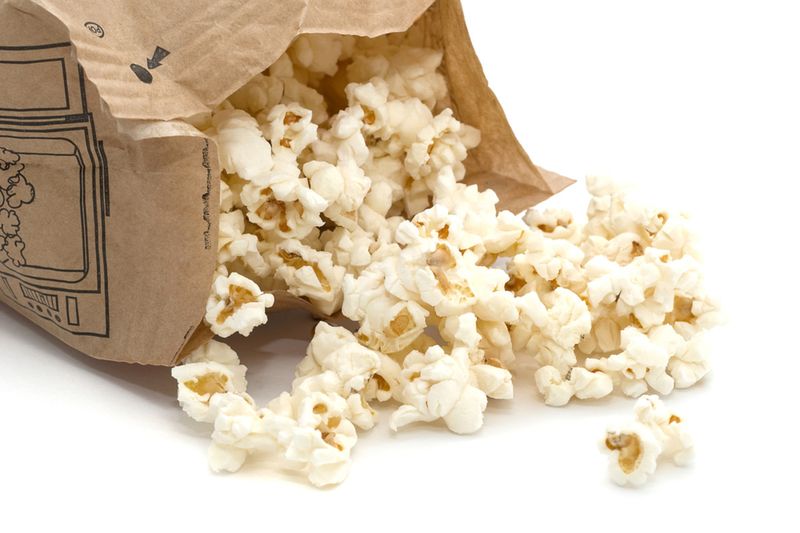
Microwave popcorn was the go-to snack for movie nights, popping with flavor and convenience. However, some brands contain harmful chemicals and excessive sodium.
The artificial butter flavoring often includes diacetyl, which has been associated with respiratory issues. High sodium levels can also contribute to hypertension.
Choosing brands with simple ingredients or making popcorn on the stovetop with healthy oils can offer a safer snack experience. This approach retains the joy of popcorn without the health risks.
14. French Fries
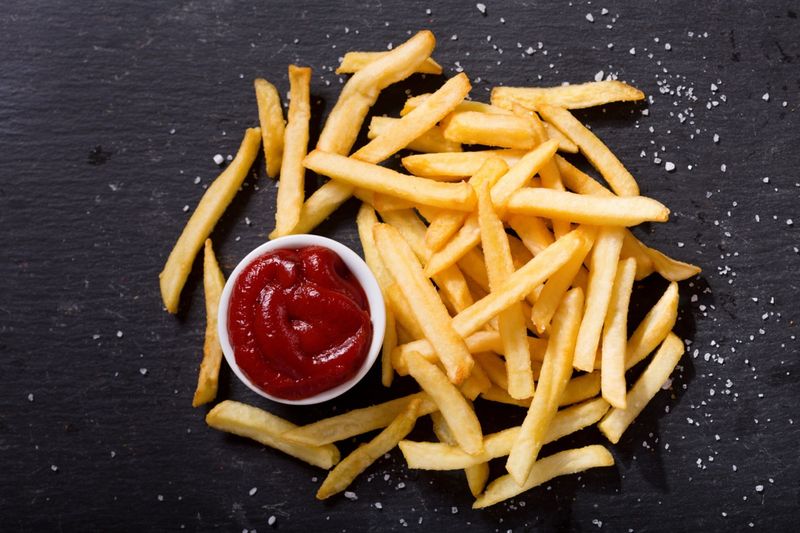
French fries, crispy and golden, were a beloved side dish and snack. Despite their popularity, they come with a hidden cost to health.
The frying process adds unhealthy trans fats, raising cholesterol levels and increasing heart disease risk. High sodium content further exacerbates these concerns.
Baking fries at home with minimal oil or choosing sweet potato alternatives can mitigate health risks. These methods preserve taste while offering a more nutritious option for fry lovers.
15. Ice Cream Sandwiches
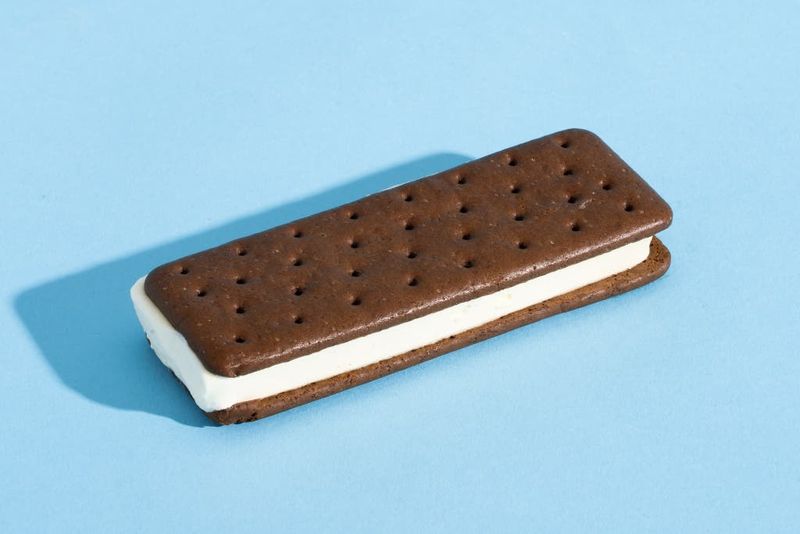
Ice cream sandwiches, a cool treat on hot days, were a favorite for many. Yet, their high sugar and saturated fat content pose significant health risks.
Regular consumption can lead to weight gain and increased cholesterol levels. The combination of sugars and fats makes them a less desirable dessert choice.
Opting for versions with natural ingredients and reduced sugar can provide a healthier treat. Making homemade ice cream sandwiches with whole grains and low-fat ice cream offers a balanced approach to indulgence.
16. Macaroni and Cheese
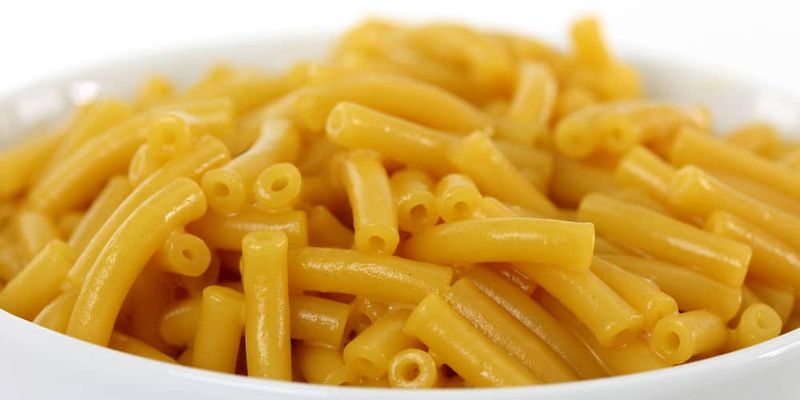
Macaroni and cheese, with its creamy texture and cheesy flavor, was a comforting meal. However, boxed versions often contain artificial flavors and high sodium levels.
The lack of whole ingredients means they are less nutritious, contributing to unhealthy eating habits. Consuming them too often can lead to weight gain and increased cardiovascular risk.
Preparing macaroni and cheese from scratch allows control over ingredients, enhancing nutritional value. Using whole grain pasta and real cheese ensures a healthier, yet equally satisfying, meal option.
17. Gummy Bears
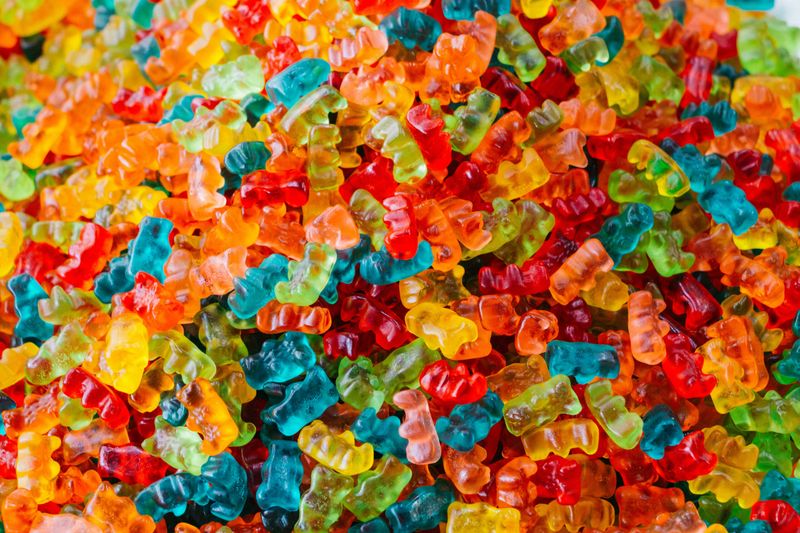
Gummy bears, with their cute shapes and chewy texture, were a fun treat. Despite their appeal, they are packed with sugar and artificial additives.
Such candies contribute to dental issues and can lead to unhealthy weight gain if consumed excessively. Some artificial colors have been linked to hyperactivity in children.
Choosing candies made with natural ingredients and enjoying them in moderation can help avoid these risks. Homemade gummy recipes using real fruit juice offer a healthier alternative, keeping the fun without the unhealthy side effects.

